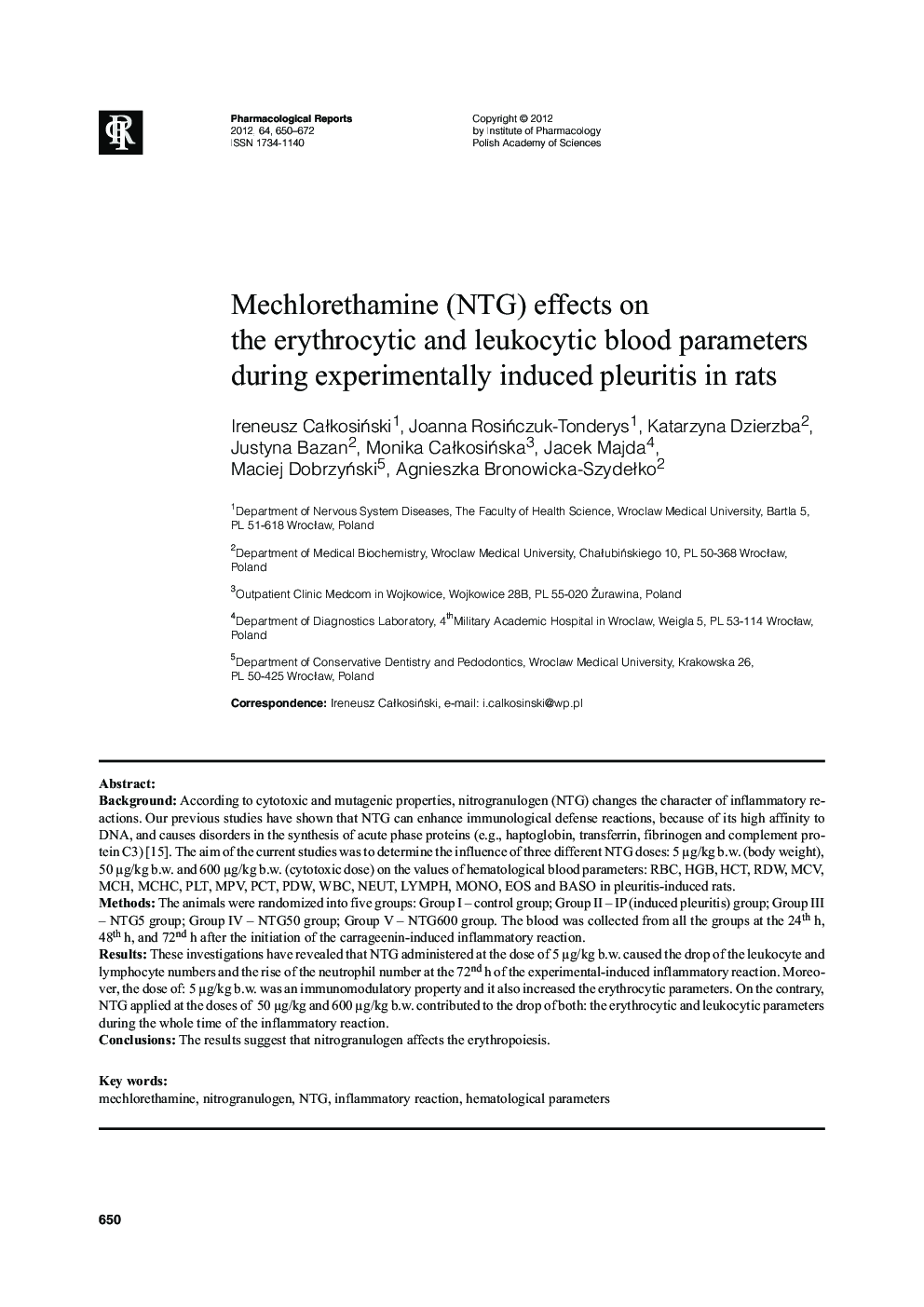| Article ID | Journal | Published Year | Pages | File Type |
|---|---|---|---|---|
| 2011930 | Pharmacological Reports | 2012 | 23 Pages |
BackgroundAccording to cytotoxic and mutagenic properties, nitrogranulogen (NTG) changes the character of inflammatory reactions. Our previous studies have shown that NTG can enhance immunological defense reactions, because of its high affinity to DNA, and causes disorders in the synthesis of acute phase proteins (e.g., haptoglobin, transferrin, fibrinogen and complement protein C3) [15]. The aim of the current studies was to determine the influence of three different NTG doses: 5 µg/kg b.w. (body weight), 50 µg/kg b.w. and 600 µg/kg b.w. (cytotoxic dose) on the values of hematological blood parameters: RBC, HGB, HCT, RDW, MCV, MCH, MCHC, PLT, MPV, PCT, PDW, WBC, NEUT, LYMPH, MONO, EOS and BASO in pleuritis-induced rats.MethodsThe animals were randomized into five groups: Group I – control group; Group II – IP (induced pleuritis) group; Group III – NTG5 group; Group IV – NTG50 group; Group V – NTG600 group. The blood was collected from all the groups at the 24th h, 48th h, and 72nd h after the initiation of the carrageenin-induced inflammatory reaction.ResultsThese investigations have revealed that NTG administered at the dose of 5 µg/kg b.w. caused the drop of the leukocyte and lymphocyte numbers and the rise of the neutrophil number at the 72nd h of the experimental-induced inflammatory reaction. Moreover, the dose of: 5 µg/kg b.w. was an immunomodulatory property and it also increased the erythrocytic parameters. On the contrary, NTG applied at the doses of 50 µg/kg and 600 µg/kg b.w. contributed to the drop of both: the erythrocytic and leukocytic parameters during the whole time of the inflammatory reaction.ConclusionsThe results suggest that nitrogranulogen affects the erythropoiesis.
